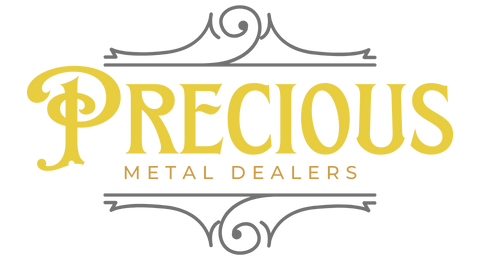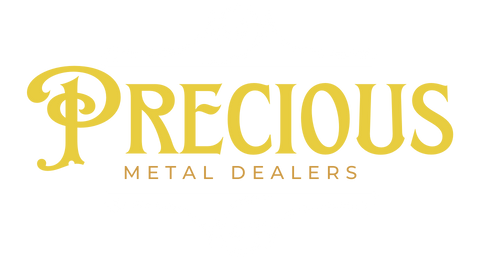Whether your intended recipient is interested in investing or drawn to the allure of precious metals, consider the benefits of offering gold or silver as a gift. These investments provide a strong store of value with little risk of depreciating over time, and they are especially beneficial during times of economic instability. And many recipients will be excited to know they possess a rare and valuable precious metal.
KEY TAKEAWAYS
Gold and silver are highly valued precious metals that are a strong store of value and an alluring physical gift.
You can gift tangible gold and silver in the form of bullion, coins, or jewelry, or intangibly through investments in exchange-traded or mutual funds, mining companies, and more.
When buying physical gold and silver as a gift, it’s crucial to work with a licensed, reputable dealer.
Physical gold and silver purchases may have significant costs associated with delivery, storage, and insurance.
There also may be tax implications for you as the gift giver and for recipients if they sell the gold or silver at a later date.
What Are Precious Metals, and How Do You Buy Them?
Precious metals such as gold, silver, and platinum are rare, naturally occurring metals that have held financial and social value for millennia. They tend to be highly durable, meaning that they do not decay or depreciate over time. While precious metals are famously used in lavish jewelry and works of art, they have also had a variety of practical uses over the centuries. For example, silver was once a key component in the photography industry. It is now used in a host of electronic devices because of its conductivity.
While gold and silver are considered safe haven assets that are likely to maintain or increase value during economic turmoil, note that the price of these metals can still be highly volatile.
When considering purchasing precious metals like gold and silver—either for yourself as an investment or for someone else as a gift—it’s important to recognize that there are a variety of ways, both direct and indirect, to invest in these valuable commodities.
Bullion
When most of us think of buying gold or silver, we imagine bullion. Bullion refers to pure or nearly pure metal bars or ingots that are often stored in vaults, safes, or other secure locations. For your intended gift recipient, bullion or smaller items like coins may be the most immediately gratifying to receive.
Jewelry
Another convenient way to gift gold or silver is to give your recipient a piece of jewelry. Traditionally, about half of all gold that has been mined has been used to make jewelry. An added benefit of this type of gift is that it has a practical use for your recipient, although wearing gold jewelry also exposes one to the risk of losing it or having it stolen.
ETFs, Mining Companies, and Futures or Options
Exchange-traded funds (ETFs) have become one of the most popular methods of investing in recent years. ETFs are pooled investment securities that allow groups of investors to gain exposure to indexes, customized groups of stocks, and even individual commodities like gold or silver. They can be traded on a stock exchange in the same way as regular stocks. There are a variety of ETFs that provide exposure to gold, silver, or other precious metals.
One can also provide indirect exposure to gold, silver, or other metals by investing in the stocks of companies that mine for those metals. There are reasons why an investor may choose to take this approach, including that the mining companies may benefit from an increase in the price of those metals. You can access these stocks directly by buying them on an exchange or indirectly via an ETF or mutual fund.
Sophisticated investors utilize the futures and options market to make bets on gold, silver, and other metals as well.
ETFs, mining companies, futures, and options are all ways that one could invest in gold or silver, but they may not make the most exciting gifts. For this reason, we will focus our discussion below on gifting precious metals as bullion or jewelry.
Buying physical gold and silver incurs costs associated with delivery, storage, and insurance. Be sure to keep those costs in mind when you’re budgeting for your gift.
How to Gift Gold and Silver
Bullion or Coins
Bullion can be purchased at a spot price, which includes both the cost of the metal itself and additional costs related to the transaction. In most cases, the best way to purchase bullion or coins is through a licensed retailer. Popular online licensed retailers include American Precious Metals Exchange (APMEX), JM Bullion, and Wholesale Coins Direct. The process is fairly straightforward and will look like this:
Visit the website or, less commonly, the in-person store of a licensed retailer.
Browse the gold or silver items for sale according to price, weight, or quantity.
Purchase the gold or silver items that you want.
Be prepared to pay for and potentially make arrangements for delivery and insurance. These costs can be significant, so be sure to account for them throughout the process.
Receive your gold or silver and store it safely in a safe or safe deposit box. It may be best to keep the bullion or coins in their delivery packaging to avoid sustaining damage.
When the time comes, give the gold or silver to your gift recipient. Be sure that they also have a safe space to store these items.
You’ll also need to account for the continued costs of insurance for the gold or silver after your recipient has them in their possession. If this is a cost that you don’t want to impose on your recipient, be prepared to make alternative arrangements such as continuing to pay for insurance yourself.
Jewelry
The process of buying and gifting gold or silver jewelry is similar in many ways to that of bullion or coins. One key item to keep in mind is that many pieces of jewelry labeled as gold or silver may have metals of much lower purity compared to bullion or even coins. It’s helpful to consult with a caratage chart, which provides insight into the composition of gold or silver by karat.
As with bullion and coins, be vigilant to ensure that any retailer you buy from is reputable and licensed. Beware of deals that seem too good to be true. Unfortunately, there have been countless instances over the years of fake or fraudulent gold and silver jewelry and bullion sales.
When buying gold or silver jewelry, it’s useful to know that items marketed as gold or silver may have significant variations in the purity and quantity of those precious metals. This is why it’s important to use a trusted, reputable dealer and to understand how caratage works.
Taxes on Gold and Silver Gifts
There are tax implications for individuals owning gold or silver in the form of bars, ingots, coins, and other physical items. The Internal Revenue Service (IRS) considers these items to be capital assets and collectibles.
As such, they are subject to capital gains tax. Capital gains tax is a levy on the profit made when an investor sells an investment.
Your gift recipient may be subject to capital gains taxes if they choose to sell the gold or silver at a future time.
As the person giving gold or silver, you should also be aware that your gift may be subject to gift taxes. This is dependent upon the value of the gift that you give, among other factors. Consult with the IRS to determine whether you may need to account for gift taxes on your gift.
How can you give gold or silver as a gift?
The most common ways to give gold or silver as a gift is through tangible items like bullion, coins, or jewelry. You can also provide indirect gifts of gold or silver through shares of an exchange-traded fund (ETF) or metals mining companies, for example.
Do you have to pay taxes on gifted gold?
You may. Gold or silver gifts may be subject to gift taxes, depending upon the value of your gift and other factors. Recipients of precious metals gifts may also need to pay capital gains taxes if they sell the gold or silver at a future date.
What other things should you keep in mind when giving gold or silver?
Be sure to purchase your gold or silver gift from a reputable, licensed retailer. You’ll need to take into account that the cost of delivering, storing, and insuring these items can be significant. There may be costs associated for your recipient in these areas, so be sure to have a plan for how those costs will be covered.
The Bottom Line
Precious metals like gold and silver can make for a valuable and meaningful gift. You may consider giving your recipient indirect investment exposure to precious metals through an ETF, a mutual fund, or shares in mining companies. However, part of the allure of gold or silver as a gift may rest in giving your recipient a tangible and physical asset. In that case, you can give precious metals in the form of bullion, coins, or jewelry. In addition to any tax implications of valuable gifts, if you’re planning to give physical gold or silver, it’s important to shop with a reputable dealer and keep in mind the costs associated with delivery, storage, and insurance.



